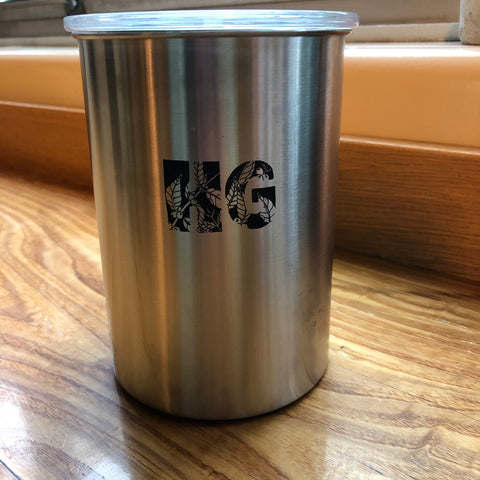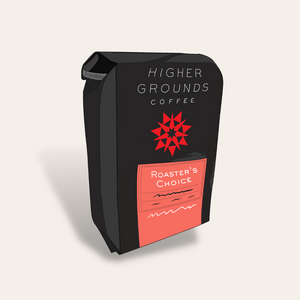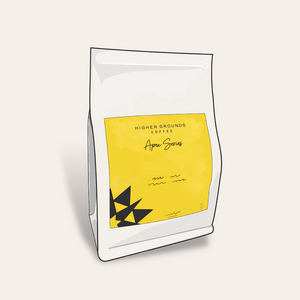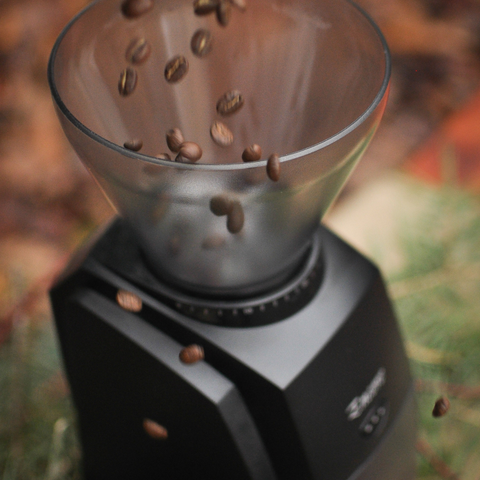“How long does coffee last?”
I get some version of this question nearly every time I host a group for a tour and tasting at Higher Grounds. Other iterations: “How should I store my coffee?” “Should I put my coffee in the freezer?” “Does coffee ever go bad?” Read on for answers to these questions and more!
Here are three tips for making sure you’re optimizing the freshness of your coffee. And as a bonus side effect, you’ll avoid wasting coffee, which is always a plus.
1. Buy whole bean and grind it yourself.
Coffee is losing freshness and quality from the moment it was harvested, just like any other plant product. Even so, in its green (raw) form, when stored at a static temperature and humidity level, its quality is relatively stable for several months. Coffee’s lovely aromatic qualities are tucked away safely inside that little seed.
Once we roast it, though, much of that flavor and aroma are brought out to the surface--that’s why it smells so good in our roastery. Those lovely nuances of scent are escaping the bean and dissipating into the air until the coffee is packaged in our sealed bags. Even then, the one-way valve built in to let CO2 escape can let out small whiffs of that aroma as well.
Finally, in order to access the solubles inside the roasted seeds, we have to grind coffee to prepare it for brewing, releasing even more aroma from the increased surface area exposed to air. You can maximize your experience of coffee’s flavor by shortening the time between grinding and brewing, so that those precious aromas end up in your cup instead of in the atmosphere. We recommend the Baratza Encore burr grinder (pictured above) for its ease of use, simple design, and ability to grind uniformly.
2. Buy a week’s supply at a time from a nearby roaster who is roasting frequently and selling small quantities.
Especially if you don’t want to shell out for a home grinder and are purchasing already-ground coffee, the best way to maximize your flavor experience is to buy small amounts of freshly roasted coffee (best if it was roasted within a few days of your purchase, but still great for a few weeks). Use up your supply quickly--within two weeks, ideally--and then buy more. If you live nearby a coffee roasting company where you can get to know the humans crafting the product, that’s ideal, but if not, never fear! You can still get deliciously fresh coffee. The proliferation of online coffee subscription services (like ours! as well as Crema.co, Mistobox, and Stay Roasted) has enabled home coffee drinkers to sit back, relax, and enjoy the perfectly-timed delivery of the coffees of their choice.

3. Store your whole beans in an airtight container, away from light, heat, and moisture.
The opaque 12oz bag you bought it in will do just fine, closed up tightly in your cupboard. Or decant into a glass Mason jar or other impermeable canister.
If you have come into a supply of roasted whole bean coffee that will certainly last you longer than a month, you may freeze it under very specific conditions:
a) portioned in sizes that you will remove from the freezer and not replace;
b) as airtight as possible, i.e. using a food sealer to remove all air from the package; and
c) in the coldest part of your freezer where the temperature is least likely to fluctuate.
Note that if you do freeze your beans, it’s perfectly fine (and actually ideal) to grind directly from frozen.
Please do not ever put your coffee in the refrigerator, where odors and moisture abound.
If you follow these tips, your daily coffee habit will be tastier and more sustainable: less waste (no more ancient coffee languishing in your cupboard!) plus more flavor. Cheers!




